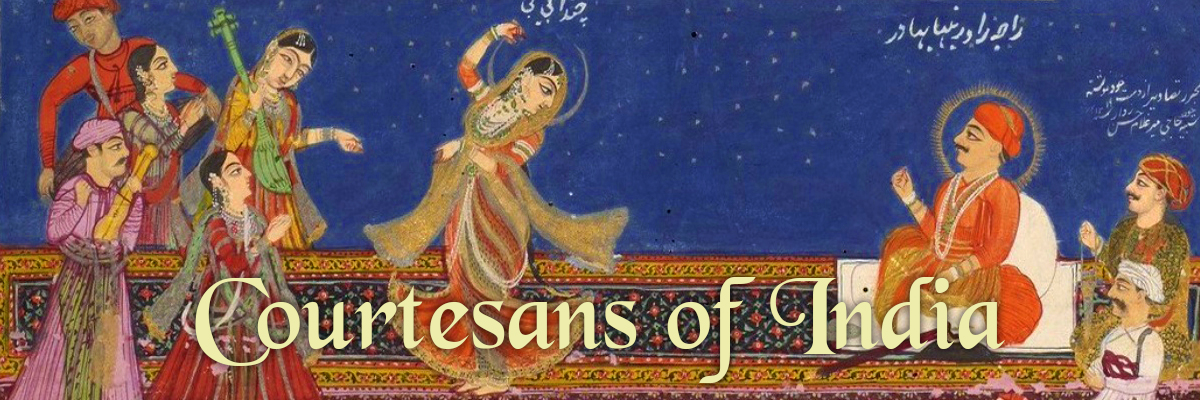Summary
After a crime lord leaves a courtesan, Sultana, in the home of the unsuspecting Dawood and threatens to kill him if anything happens to her, Dawood must pretend she is his new bride. Dawood, who is forming a romance with a local author writing a book about a courtesan, must carefully conceal Sultana’s identity while avoiding unsavoury circumstances. Despite Dawood’s resistance, a romance develops, and the two must ensure Sultana’s escape from the crime lord and ensure a happy ending.
Questions to Consider
- A common theme of the Bollywood courtesan genre is courtesans wishing to escape their lives into “respectable” heterosexual marriages (see Poonam and Hubel to learn more.) This is certainly true of Tawaif’s ending, but is Sultana’s courtesan life not considered “respectable”? Does the film respect Sultana herself? Does it respect her work? Can they be separated?
- Dawood is very interested in Poonam’s book about courtesans, but looks down upon the real courtesan, Sultana. Who else consumes media representations about courtesans while disrespecting the people upon which those representations are based? What might the film be suggesting here about representation and consumption?
- Was Sultana respectable before she was married? If so, how does the marriage serve to influence opinions of Sultana—those of the audience and the other characters?
- Several scenes suggest that Sultana believes her work is shameful. For example, while staying with Dawood, Sultana refuses to sleep on the wedding bed the landlady had intended for her son, believing that as a courtesan, she is “unworthy” of lying on such a bed, or even of marriage in general. From where do we believe Sultana absorbed this opinion? Is this opinion of courtesans shared by the other characters? Is it shared by the film?
- Does Sultana have a say in the work she does? In the world of this film, do other courtesans? Would Sultana’s happy ending be accessible to a courtesan who liked or chose her work? Does this film appear to believe that courtesans can like their or choose their work?
- In what ways could viewing courtesans as innocent victims of circumstance (e.g: trafficking, poverty) help them? In what ways could that view pose a risk?
